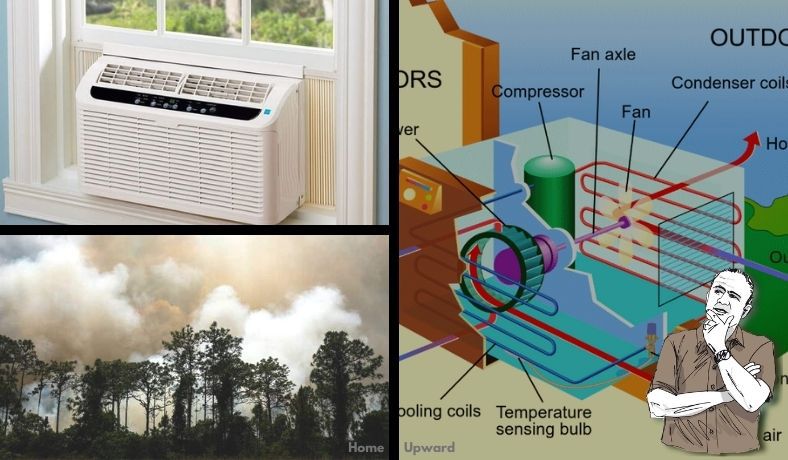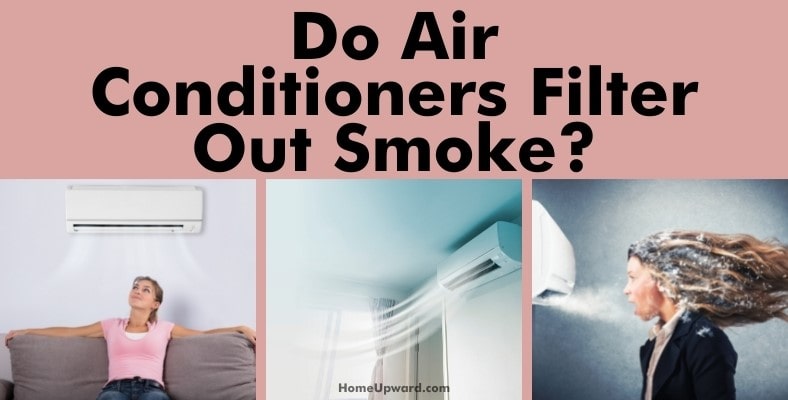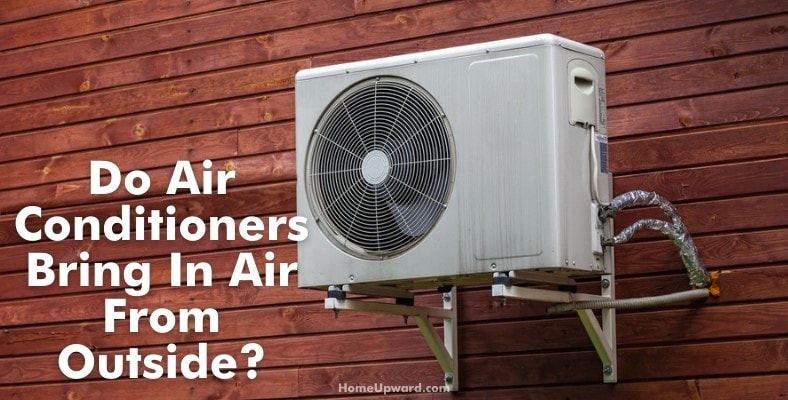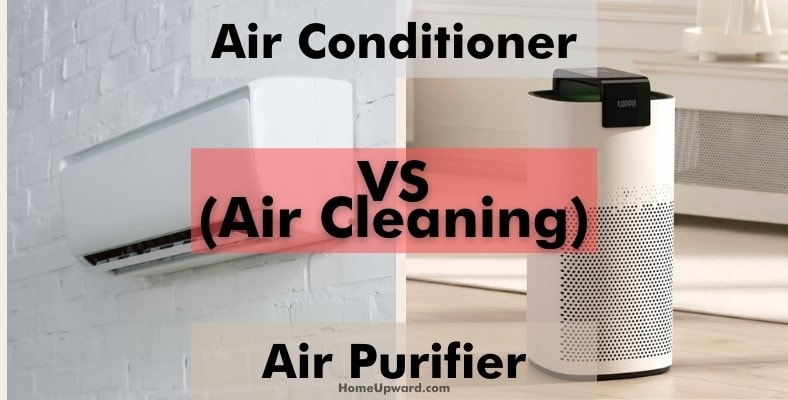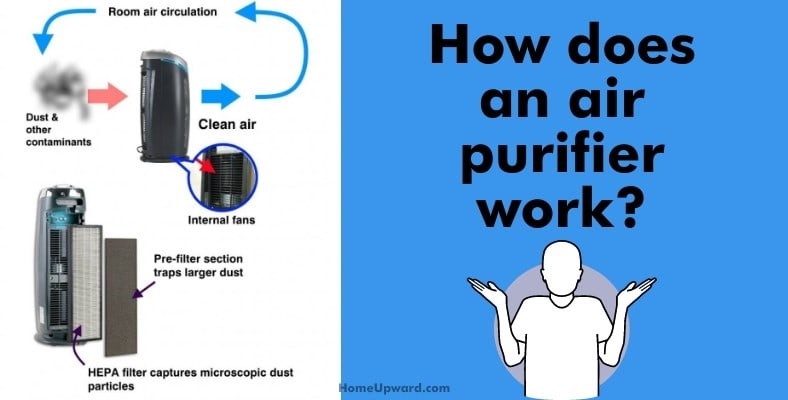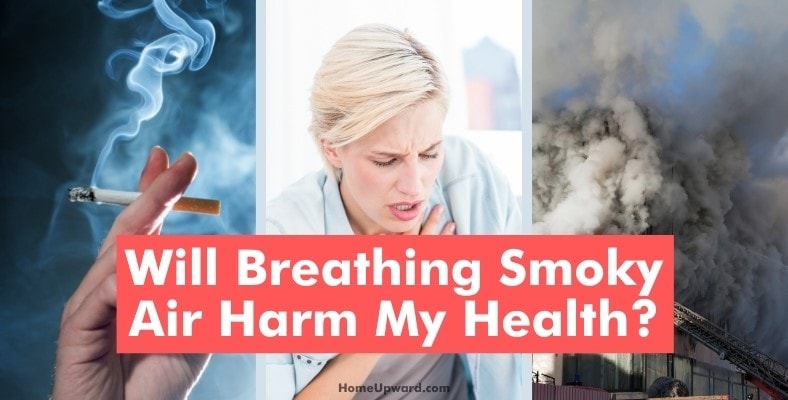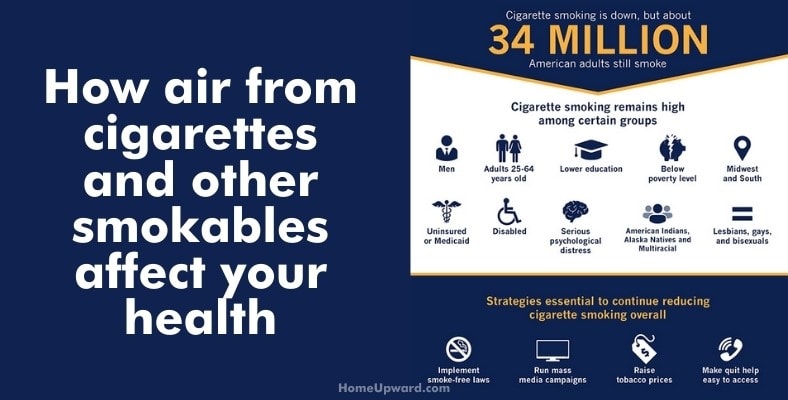Whether you’re looking to remove smoky air from outside or cigarette smoke from inside, you might be wondering if your good ‘ole air conditioner can do the job. That’s a great question: do air conditioners filter smoke?
In this helpful article, I’ll answer this question and also share some additional things you might not know or expect!
Contents
Do air conditioners filter out smoke?
Air conditioners work by sucking in the surrounding air in your home, passing that air over coils that cool the air, and then blowing that air back into your home. However, the truth is that air conditioners cannot filter out smoke.
That’s because of several reasons, one of which being that smoke particles are some of the smallest air contaminants and require better filtration. The second is due to the type of filters used in air conditioning (AC) units.
Do air conditioners have filters?
Many AC units do have internal filters that are designed to improve air quality somewhat, but mostly for trapping large particles like dust.
These filters are recommended to be changed monthly, but depending on the number of pollutants in your home, you may need to change them more frequently. People who live in areas that easily catch fire may need to change them weekly or invest in higher particle count remover.
Cigarettes produce gases that pollute the air such as carbon monoxide, arsenic, ammonia, and hydrogen cyanide. They can combine to clog an AC filter, reducing your air quality. If you have smokers in your home, you may notice that a smokey smell remains for long, even when they only smoke outside.
That is because the pollutants and odors will stick to their clothing, skin, and hair. AC filters will need to be changed regularly in homes with smokers.
If you have an AC unit, it will have some kind of filter however these types of filters cannot trap smoke particles. Room units have a grill – the filter will be on or around the grill. Window units have a filter located under the air intake, usually at the front of the unit.
Large AC units have the primary home filters, and central AC units have a filter connected to the return duct. You will often find these in hallways, hallway ceilings, or on the wall.
What are the effects of breathing in smoke?
You may notice how smoke affects you immediately and your ability to breathe. Some symptoms you may see are:
- Difficulty in breathing
- Coughing
- Increased asthma attacks
- Wheezing
- Scratchy or itchy throat
- Stinging eyes
- Irritated sinuses
- Runny or very dry nose
- Sudden tiredness
- Headaches or migraines
- Increased heart rate
- Chest pain
Do air conditioners bring in air from outside?
Air conditioners do not bring in air from the outside. AC units only take in and expel air that is already in your home depending on the type and the mode it’s set to (recirculate or vent mode, for example).
What comes from an AC unit is the heat produced during the process of moving air through a cooling system and blowing it outdoors. A window AC unit may allow a small number of outside contaminants to get into your home, but you should be just fine if the unit is well sealed.
Does central air conditioning bring in fresh air?
It is safe to use your AC unit if there is a wildfire or other fire-related smoke outside.
That is because central air and air conditioners only use the air that is already within your home.
The AC unit uses a powerful fan and pump system that draws air from within your home through its cooling coils. Then, within the closed system, the air is cooled and pushed back through a filter into your home.
The air that you can feel coming out from an AC unit located outside is exhaust from the cooling system.
How to protect yourself from outside smoke exposure
First, ensure that you follow the right steps to keep the smoke outside and reduce how much it gets into your home.
Enforce a no-smoking policy inside your home, and ensure that any smokers do so away from doors, open windows, and your AC unit.
If your area is suffering from wildfire smoke, take steps to keep your family safe.
- Keep smokey air outside – do not open windows, leave doors open, and close vents to the outside.
- Set up a portable air filter or an air cleaner such as a high-quality HEPA purifier rated for smoke.
- Ensure that pets and animals are secure in a clean room with you.
- If the air quality continues to worsen, consider evacuation.
- If you experience a long-term power outage, do not seal any doors or windows. This may lead to carbon monoxide poisoning.
Air conditioner vs. air purifier differences for air cleaning
An air purifier is a small appliance that filters the air in your home.
While an AC unit works to cool the air, an air purifier’s job is to produce healthy and fresh air. Many air purifiers have HEPA filters that permanently catch contaminants in the air, such as airborne chemicals and pollutants.
Air purifiers can help to remove smells, such as pet odor. They can also help to remove:
- Cigarette smoke
- Pollen
- Pet dander
- Irritants
- Dust
- Dust mites
And other irritants that make it harder to breathe.
While an AC unit may anecdotally clean up the air in your home, an air purifier’s main purpose is to provide you with clean, healthy air.
How does an air purifier work?
An air purifier is a small machine that packs a big punch and in fact they’re one of the most popular air quality products around!
Air purifiers work by cycling the air in a room and moving dirty air through a High-Efficiency Particulate Air (HEPA) filter, trapping and permanently removing contaminants in the air. As the process continues the air purifier will continuously cycle and filter bad elements and odors in a room. The result is fresh, clean, healthy air being left behind.
Just like a fan, it sucks in contaminated air. Using its filters (the main HEPA filter, a pre-filter, and optional activated carbon layer) the air is pushed through and returns back into the room as fresh, clean air.
Will breathing smoky air harm my health?
While low air quality will affect everyone, those with breathing-related conditions such as Chronic Obstructive Pulmonary Disease (COPD), heart disease, or asthma may notice increased difficulty breathing both inside and out.
Ground-level ozone (which is a very important component of smog) and particles in the air will reduce air quality.
Every day, you can look up the AQI or Air Quality Index for your location. This resource will inform you of how many pollutants are in the air at that time.
Breathing in air that has been exposed to wildfire or other fire-related smoke can be harmful to your lungs, organs, and brain. Those who are pregnant, have asthma, COPD, heart disease, or are children are more prone to negative health effects from inhaling smoke.
Breathing in smoke can increase your risk for cancer, asthma, and stress on your lungs. If you notice you are suffering from smoke-related symptoms, you’ll definitely want to talk to a doctor or medical clinic nearby.
How air from cigarettes and other smokables affects your health
The Center for Disease Control (CDC) has basic information in regards to the effect of smoking on your body.
Not only does breathing in smoke lead to permanent damage to almost all of your organs, but it can:
- Increase your chances of developing serious diseases
- Worsen or start cardiovascular diseases
- Worsen and cause respiratory diseases
- Lead to cancer in you and anyone who breathes in your second-hand smoke
- Increase your risk of having a stroke
- Cause long-term pregnancy complications, such as stillbirth, SIDs, ectopic pregnancy, preterm delivery, and reduce fertility in men

